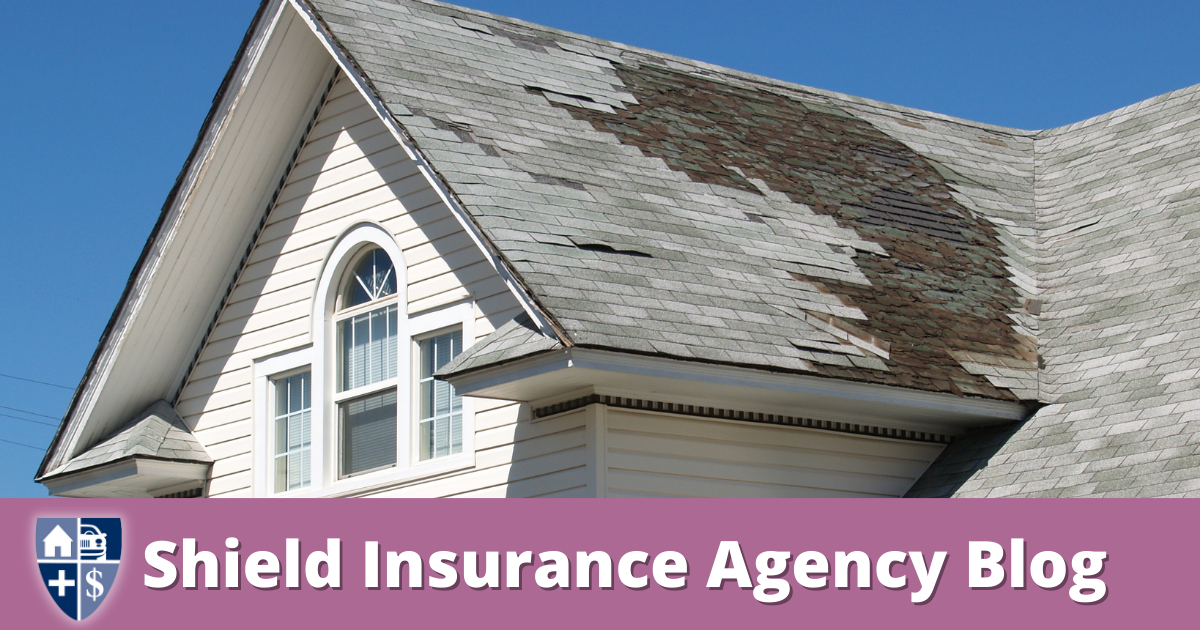You love your home. Make sure you know how to keep it — and you and your loved ones — safe and sound. Here are 10 common home emergencies and how to handle them.
1. Kitchen fire.
The most common culprit of a kitchen fire is an inattentive cook. It’s never a good idea to leave your stovetop or oven unattended when food is cooking. Prevent kitchen fires by cooking during times when you won’t need to step away from the kitchen.
If a kitchen fire happens, take these steps:
- For a small grease fire, try smothering it with baking soda or sliding a metal lid over the pan to suffocate the fire. Turn off the stove. Never use water to put out a grease fire; it can be dangerous and make the situation worse.
- For an oven fire, keep the oven door closed and turn off the oven.
- If the fire continues, help everyone to evacuate the house, close the door behind you and call 911 from a safe distance from your home.
Also, remember to regularly check your smoke detectors. Put a reminder on your calendar to test all the smoke detectors in your home monthly, and promptly replace batteries when needed. Consider replacing all your smoke detectors every 10 years.
2. Water leak.
Whether it’s a slow drip or a steady stream, the best thing you can do is know where your home’s main water valve is located — typically it’s in the basement or near the front of the house — which controls the flow of water into your home and learn how to turn off your water in an emergency to prevent water damage to your home. Then you will need to call a plumber for assistance.
If your ceiling is leaking, gather buckets or plastic sheets under the leak to help prevent water damage. Then try to track down the source of the leak. If it’s likely a roofing issue, it’s best to call a professional right away to assess the situation and help with repairs.
Finally, take steps to insulate your pipes before the weather turns cold to prevent pipes from freezing and bursting.
3. Water overflow.
Anything that holds a lot of water in your house can potentially overflow into the surrounding area. Here’s how to handle a water overflow
- When a toilet overflows, find the valve behind the toilet near the wall and turn it off to stop the flow of water. Then, quickly mop up any standing water. Finally, try to determine the cause. Look for issues with the fill tube and float as well as for clogs or other issues that could be keeping the toilet from draining. If you’re still stumped, call your plumber for assistance.
- When your bathtub or sink overflows, first stop the flow of water — whether it’s as simple as turning off the faucet or by shutting off the main water valve to your home if the faucet is broken. Then, quickly mop up standing water to prevent further damage. If the faucet is broken, make necessary repairs before using that sink or bathtub again.
4. Flooded basement.
Whatever the cause, if your basement is flooded with water, the most important thing is that you NEVER enter a flooded basement. For your own health and safety call your utility companies first, and stay away until they have turned off the electricity and gas. Then, it’s best to hire a professional to help you clean up, mitigate the damage to your home and help prevent you and your family from becoming sick. You will need to throw out anything the flood water reached unless it can be thoroughly cleaned and disinfected.
5. Power outage.
When the power goes out, check to see if nearby homes and streetlights still have power. If their lights are still on, check your breakers. If the neighborhood is dark too, then call your power company, or visit their website, to report the power outage and ask for an estimated repair time
Stay safe by following these steps:
- Use flashlights. Don’t light candles. Keep your flashlights in an easy-to-find location, test them monthly, and keep spare batteries in a known and accessible location. If you don’t have a flashlight, your cell phone can help provide some light to help guide you safely through your home.
- Keep your refrigerator door closed. Food can spoil in a refrigerator after the power has been out for more than 4 hours.
- Turn off or unplug electronics. If the lights were on or you were using any electrical equipment, like a computer, when the power went out, switch your lights off and unplug your electronics.
If you anticipate having a power outage that lasts for days, such as after a hurricane, consider investing in a generator that can help provide electricity to essential things in your home, like a refrigerator or freezer. Be sure to follow all safety instructions while using it.
6. Carbon monoxide.
Carbon monoxide is a clear, odorless gas that can cause severe illness or even death. The symptoms are often like the flu without a fever. If you think you have carbon monoxide poisoning, call 911.
The best way to prevent a carbon monoxide emergency is to:
- Use carbon monoxide detectors and test them once a month to make sure they’re in good working order. Check the manufacturer’s instructions to learn how often to replace your carbon monoxide detectors.
- Have gas appliances inspected at least once a year.
- Properly vent all gas furnaces, water heaters and fireplaces.
- Follow all safety instructions for gas-powered appliances, such as space heaters and generators.
7. Gas leak.
When a natural gas line leaks, you may smell gas (it smells a lot like rotten eggs). While natural gas lines don’t leak often, you should always take it seriously if it does. A gas leak inside your home can make you sick or even lead to an explosion.
If you notice the smell of natural gas inside your home:
- Go outside IMMEDIATELY and call the utility company and 911.
- Don’t try to find the leak.
- Don’t turn on or off any electrical appliances.
- Don’t smoke or have any open flames nearby.
8. Broken glass.
Whether it’s a cracked window or a smashed dinner plate, broken glass can be a difficult mess to clean up. Whenever possible, take actions to prevent it, such as closing shutters, blinds and curtains ahead of severe weather or handling glass objects with care. But when it happens, here’s how to clean up broken glass safely:
- Don’t handle glass with your bare hands. Put on thick or rubber gloves if you have them or use a tool like a piece of cardboard or stiff paper to help you scoop up the large pieces of glass.
- Next, use large tape, like duct tape, to help you pick up smaller pieces of glass. Because broken glass can travel farther than you might expect, be sure to use your large tape on the surrounding area, too.
- Finally, mop or wipe up the entire area with wet wipes or doubled-up paper towels. If the glass is in your carpet, thoroughly vacuum the area using a hose attachment and move it in different angles and directions to get as much glass out of the carpet fibers as possible.
- If the window is broken, you can seal it temporarily by taking a trash bag and cutting it with scissors to fit the window. Tape several layers of this plastic bag to the window’s frame with duct tape. Then immediately schedule a window repair or replacement.
9. HVAC goes out.
When your air conditioning or heating decides to quit, your first call should be to a technician who can inspect it, and if needed, repair or replace it as soon as possible.
If your A/C goes out during warm weather, take steps to keep your body temperature stable to prevent heat stroke and stay comfortable. Here are some things you can do:
- Drink ice water often and avoid drinking alcohol. Alcohol can raise your body temperature.
- Eat foods that are easy to digest, like fruits and vegetables.
- Take a washcloth and rinse it under cold water, then put it on your neck, wrists or behind your knees to help keep your body cool.
- Consider living in the lower level of your home since heat rises. For example, it may be more comfortable to sleep downstairs instead of an upstairs bedroom.
If your furnace stops working during cold weather, stay warm and safe with these tips:
- Add layers to your clothing.
- Don’t use your oven for heating.
- Find a small area inside your home that you can heat with a fireplace or electric space heater. However, someone should stay awake while either of these are used to make sure there aren’t any issues. Be sure that your fireplace has proper ventilation to prevent carbon monoxide poisoning.
- Hang curtains, quilts or bedspreads over doors and windows.
10. Ant or rodent infestation.
If you have unwelcome house guests that have more than two legs, it’s time to assess the situation so you can send them packing.
- After you’ve spotted a mouse, walk the perimeter of your home — both on the inside and outside — and look for any signs of mouse activity (for example, mouse droppings, chewing or nests) and look for any small hole or crevice where the mouse could be entering your home. Cover any entry points with sealant or wire mesh. Then, set a series of mouse traps. If you continue to have issues, call a professional right away.
- When you’ve found a trail of ants, remove them and thoroughly clean anywhere you think they’ve been with a vinegar spray to help remove their ant trail scents. Look for tiny gaps or cracks near windows, doors and floorboards, where the ants may be entering your home. Set up ant traps and consider calling a professional who can determine if there’s an ant nest near your home. If you have large black carpenter ants, call a professional immediately since these ants can cause more damage to your home.
References:
– WebMD
– Familyhandyman.com
Contact your Shield Insurance Agency for complete details on your home insurance coverage and discounts.



























































